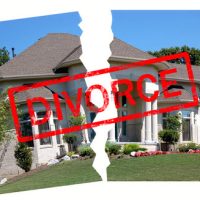What is Considered Marital and Separate Property in New York State?

New York is an equitable distribution state. That means that assets are divided in accordance with what is equitable or fair, not necessarily a 50/50 split. It’s important to understand that only the marital estate is divided. That means only property that is considered “marital” is subject to equitable distribution. Understanding the different types of property and how they’re determined is crucial to understanding what will happen to your assets in a divorce. In this article, the Westchester County divorce lawyers at The Law Office of Robert S. Sunshine will discuss marital and separate property and how that works in New York State.
What qualifies as marital property?
Marital property includes most property that was acquired by either spouse during the marriage. It doesn’t matter whose name is on the title. If the property was acquired during the marriage, it is likely (with some exceptions) part of the marital estate. Certain types of acquisitions are excluded from this. Inheritance, gifts, or personal injury recoveries are not considered a party of the marital estate.
Dividing marital property can become contentious when one spouse thinks of a business or an asset as belonging to them alone. In New York State, chances are good that the asset is considered part of the marital estate and thus subject to equitable distribution. Many assets that divorcing spouses consider separate are, in fact, marital property.
What qualifies as individual or separate property?
The following types of property are considered separate property in New York State.
- Any property acquired by either spouse before the marriage began
- Property either spouse received individually as an inheritance
- Property acquired by gift, legacy, or descent from someone other than a spouse, either before or during the marriage
- Property acquired in exchange for property that was acquired before the marriage. For example, if one spouse owns a piece of real estate and sells it off, the proceeds of that sale would still be considered separate property
- Compensation for personal injury unrelated to the loss of wages or earning capacity
- Property so established as separate property in a prenuptial or postnuptial agreement
- Derivative appreciation in value of any separate property is still considered separate property in New York State unless the other spouse somehow contributed to the increase in value of that property
- Any property acquired after the date the divorce summons is filed
Separate property can sometimes become marital property
Adding to the complexity of the matter, separate property can sometimes become marital property if the separate property is “commingled” with marital property. This occurs when separate property is mixed with marital property that its status as separate property can no longer be determined. This can become an issue in a number of circumstances.
Say, for instance, that you owned a piece of real estate before the marriage. You sell off the real estate and then deposit the money in a joint account. The funds from this account are used for daily living expenses. It’s no longer clear if this is separate or marital property. The same holds true for inheritances. If an inheritance is commingled with marital funds, then it’s no longer clear if it’s separate or marital property. The courts will treat this property as if it is marital property and subject it to equitable distribution.
Talk to a Westchester County, NY Family Law Attorney Today
The Law Office of Robert S. Sunshine represents the interests of Westchester County, NY residents who are pursuing a divorce. Call our Westchester County family lawyers today to schedule an appointment, and we can begin discussing your next steps right away.
